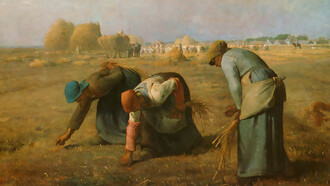Keyshaun Scott rhythmically strolls the streets of Bogotá, Colombia, carrying a takeout bag from his favourite empanadas place. His headphones conceal him from the noisy traffic with a shuffle playlist of mainly house music and French rap. Not to mention, as an African-American he already seems out of place in that grey Andean city.
Keyshaun has been living in Bogotá for the past year and in Colombia for almost three. He originally arrived as a member of the U.S. Peace Corps into the historic town of San Basilio de Palenque. The “first free town of the Americas”, a settlement of runaway slaves, was Keyshaun’s base of operations for over a year. There, he forgot all the modern comforts of his native New York and learned how to shower with a bucket, how to wash clothes by hand, and how to patiently wait out hours-long blackouts.
His work was mainly focused on promoting a circular economy and entrepreneurship. He taught classes on financial literacy, marketing, and ESL while working on projects of agriculture and pisciculture. He was always trying to emphasise the importance of developing food systems to achieve self-sufficiency. On top of this, he organised a business fair in San Basilio de Palenque.
Keyshaun was not limiting his work to the community. He understood the importance of raising awareness and trying to put Palenque’s problems in the orbit of decision makers. As a member of the Peace Corps, he was invited to a gala dinner with a commission of U.S. congressmen visiting Colombia with the Aspen Institute and the Wilson Centre’s Latin America Program. He has also been invited to be a speaker at events on international development projects and entrepreneurship organised by the Ministry and the local Department of Education and the University of the Arts London.
When his contract was over, Keyshaun wanted to stay in Colombia and moved to the regional capital, Cartagena, to find a job. In the meantime, he employed the patience learned in Palenque to give private lessons in Spanish and French. A polyglot, he speaks five languages and can converse in a couple others. Growing up between New York and Atlanta he was exposed to Spanish and Portuguese-speaking friends in his neighbourhood and school. He later studied French because he “found it cool” and Russian because he wanted a “challenging language”. He also knows American Sign Language because he lived many years with his deaf and mute grandma. Nowadays, he is studying Mandarin in homage to his Chinese great-grandfather who immigrated to Jamaica. Talk about a mix.
This affinity for languages expanded Keyshaun’s student and professional life. He completed study abroad programs in Finland and Argentina and has worked in bilingual customer service for Luxottica’s Montreal operations. As a tourist, he has traveled through Latin America, Europe, Central Asia, and Russia. He claims to never feel like a foreigner anywhere.
Now in Bogota, Keyshaun is a Specialist in Knowledge and Reporting for ACDI/VOCA—an international development NGO specialising in projects for marginalised communities. In Colombia, these are mainly with the indigenous and Afro-Colombian population.
His tasks are related to tracking the progress of projects. He uses quantitative and qualitative research to produce reports and measure progress of the different projects. With this he serves as a liaison with the regional and national managers as well as USAID. His job also includes visiting the remote regions where ACDI/VOCA is present and understanding first hand the conditions where the projects are taking place.
For now, Keyshaun says he is content working in humanitarian development. For a next step he lists working as a director of ESG or CSR in major companies, with sustainability and traditionally overlooked communities as his main focus. In a distant financially stable future he wants to invest in Latin American startups and promote sustainable practices at a larger scale.
For this New Yorker in love with Latin America, the key to socioeconomic progress is found in resilience. Of course that is easier said than done. Finding new ways to adapt to the volatile circumstances that characterise Latin America is more challenging everyday. At one point, all Latin Americans have to shower with a bucket—but does the water have to be cold?















